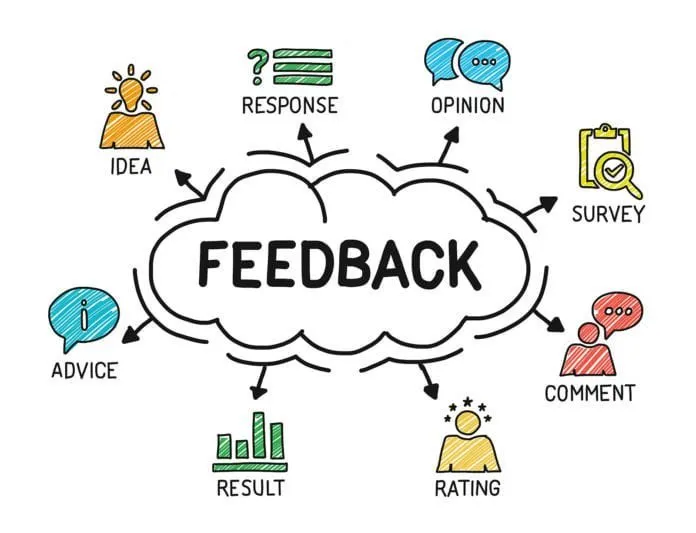The COVID-19 crisis is challenging both our civic structures and our values. As the effects of the sustained economic downturn become further entrenched, those who struggle to access opportunity even in the best of times will undoubtedly bear a disproportionate burden. We have already seen how this crisis has exposed the fault lines of our nation’s inequalities. Communities of color in particular have been disproportionately impacted by COVID-19 as a result of historic inequities in housing, access to health care and employment. Black Americans are incarcerated at five times the rate of white Americans. If we are to address the needs of COVID-19-impacted communities, it is essential that we account for the people released from incarceration, many of whom will return to low-income communities that are now dealing with record levels of unemployment.
In any given year, more than 600,000 individuals return home from incarceration. During this time, state and local leaders must act to release more people in an effort to manage the public health threat posed by COVID-19 within prisons and jails. While many state and local communities have made small steps toward reducing their incarcerated populations, much more needs to be done to ensure returning citizens connect to the workforce now and when the economy begins to recover. A recently published New York Times op-ed discusses the harsh impact COVID-19 has had on those within the justice system. Reducing the number of people incarcerated is essential to protecting the public health and improving public safety. Incarceration increases the likelihood that a person will return to jail or prison for behavior that can be more effectively addressed in the community. Incarcerated persons are also more likely to suffer from mental illness and debilitating preventable diseases like COVID-19. How we support returning community members upon their release will determine how both they and their communities are able to navigate this crucial moment.
These COVID-19 response reductions in incarceration present a pathway towards better reentry policies that extend beyond the immediate crisis. Community-based, evidence-informed programs are much less expensive and more effective at promoting public safety. Shifting federal investment away from expensive and ineffective prisons while increasing investment in effective community-based services is a smarter, cost-effective way to strengthen communities.
CEO’s Response
CEO offers individuals coming home from incarceration the ongoing support necessary to build career capital and financial stability. As the largest reentry employment provider in the country, CEO uses our scale, experience, and data-backed by participants’ feedback on what works - to change the way government invests in criminal justice and workforce development. CEO’s comprehensive program includes four phases: job readiness training, transitional employment, job coaching and placement assistance, and post-placement retention services. With the impact of the COVID-19 pandemic, CEO has made significant investments to make adjustments to our program and implement enhanced safety protocols to our transitional jobs to ensure that our past and current participants remain supported during this vital time.
CEO has shifted our job readiness training from a class-based model to remote learning. Job coaches and job developers are engaging remotely with participants currently enrolled in our program and are focused on re-engaging participants who have lost their job. Our crew-based transitional jobs operations have made significant adjustments for safety, such as running smaller crew sizes to ensure participants have enough space to maintain a healthy distance from one another. Additionally, CEO is providing participants with even more opportunities to further their technical training, including roadway flagger, hazard communication, plant identification, and vegetation management. In many of our work crews that have temporarily shut down in California, CEO has also worked with Caltrans to create new distance-learning training opportunities on essential services for participants so they can continue to further their skill development and receive much needed paid work experience during this crisis.
CEO will continue to offer services as safety warrants during this time. However, the federal government must invest in grants and programs that directly reach returning citizens so states and local governments have resources to lessen the racial, economic and health disparities exacerbated during COVID-19.
COVID-19 Federal Policy Recommendations for Connecting Returning Citizens to Employment
While returning home from incarceration is incredibly challenging even in the best of times, it is exceptionally difficult at this moment. Many returning citizens will not be able to access the stimulus checks, nor other expanded benefits, from federal legislation. States do not have sufficient resources for reentry and employment from the federal government, even as officials release more individuals from prison to avoid further suffering from the virus.
Congress should help ensure that people stay connected to job training programs and can find employment by completing the following 5 actions:
1. Create $500M targeted pot of Byrne JAG grants so states may specifically target employment and training for returning citizens. Federal stimulus packages thus far have contained no targeted funds for states in need of additional reentry support to ensure individuals returning home from prison find the jobs, training and support necessary to be successful. Similar to action taken during the Great Recession, DOJ should target Byrne JAG grants to this reentry need and prioritize states that have already reduced their prison and jail population and support those who will take a similar action moving forward. These resources would allow workforce systems to help states add vocational and job training capacity to reach those on parole.
2. Allocate $5B of Workforce Innovation and Opportunity Act (WIOA) workforce dollars with $500M funding specifically for transitional jobs for unemployed and underemployed workers, including those returning home from prison. To aid in economic recovery, a major infusion of workforce dollars to states will be necessary to connect individuals to employers, via opportunities to earn a wage while learning skills and overcoming barriers to a job. The nation’s main workforce training program, WIOA, is underfunded and underutilized, with few dollars allocated to subsidized employment opportunities that would allow organizations like CEO to scale up to meet the current need with vital on-the-job training and support services. The $500M for transitional jobs would pay wages to participants while assisting with a critical connection back to the workforce.
3. Expand Supplemental Nutrition Assistance Program (SNAP) eligibility and benefits to ensure food security. Congress should expand SNAP benefits provided in the Families First Coronavirus Response Act so states can assist individuals during a critical reentry period with food security. Lawmakers should extend the FFCRA SNAP eligibility provisions by a) increasing benefit levels and extending the duration of the provisions that allow for administrative flexibility by at least 12 months b) clarifying that E&T participants are exempted from the work requirement; c) directing USDA to waive proof of eligibility verification for those SNAP applicants who do not have access to documents or the means to procure them during the COVID-19 emergency; d) exempting E&T subsidized employment activity wages from countable income determining SNAP eligibility. The United States Department of Agriculture should also retract pending rule changes that would cut off access to SNAP via tightening work requirements and eligibility requirements.
4. Invest $500M in voluntary SNAP Employment & Training (E&T) and reduce the match burden to reimburse E&T 50/50 partners 90 cents for every 10 cents of expenses. SNAP provides both access to food security and job training via E&T for many people struggling to find work; this program can be expanded at this time of need by: a) reimbursing 90 cents for every 10 cents of expenses job training services E&T 50/50 partners provide; b) allowing WIOA and other federal grant dollars to serve as match for SNAP E&T 50/50 funds; and c) Investing an additional $500M in voluntary E&T programs to support the increase in the number of people being served.
5. Fix the Paycheck Protection Program (PPP) by making those business owners with a criminal record eligible to apply, and extending the site-based exemption to include nonprofits providing employment and training to returning citizens. During rulemaking, the Small Business Administration prohibited those with a criminal conviction incurred during the last 5 years, and those who are incarcerated or on probation and parole from obtaining a forgivable loan under the PPP. This is an unnecessary barrier for those attempting to rebuild their life and stay employed. Furthermore, as more individuals are rightfully released from prison, nonprofit employment and training organizations will need resources to sustain operations and be there to meet the need. Congress should fix the PPP to clearly include nonprofits that have more than 500 employees due to responding to the need of the moment. Lawmakers could extend a site-based exemption which would protect nonprofits offering transitional jobs and employment opportunities to returning citizens.



